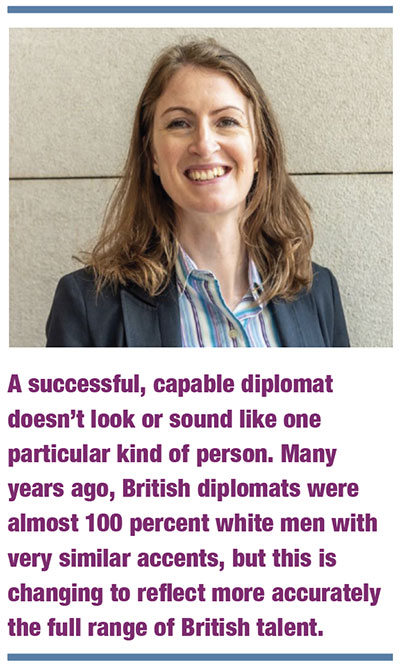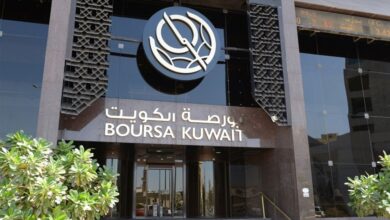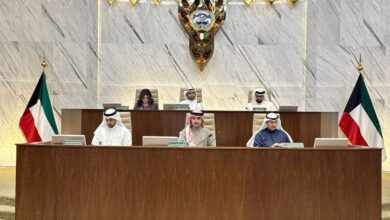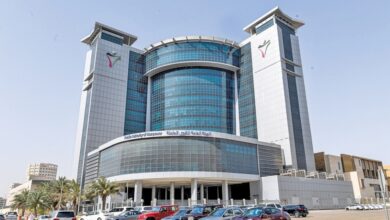Diplomacy is Building Relationships: Understanding what another human being needs and cares about
Continuing our series on Women in Diplomacy, we spoke this week with the Ambassador of Great Britain H.E. Belinda Lewis. The ambassador, whose highly successful four-year tenure in Kuwait is drawing to a close, emphasized that confidence, resilience, willingness to listen and learn, as well as building relationships, are more important in diplomacy than the gender of the diplomat.

The Times Kuwait Report
What inspired you to pursue a career in diplomacy?
It just seemed so fascinating! I loved the idea of serving my country overseas, getting to know lots of other people and cultures, and experiencing so many different things. I spent about 10 years as a civil servant in London before joining the Diplomatic Service and I really enjoy the extra variety that I experience now.
What challenges have you faced as a woman in diplomacy, and how did you overcome them?
Sometimes I have had to push harder to be listened to, and to challenge the idea that somehow women are not as intelligent or as effective as men: it’s important to be confident and stand your ground. I also have a young family and often feel guilty about not spending enough time with my children. I know many male diplomats feel the same, but society doesn’t judge them in the same way that a woman is judged. I’m very fortunate to have an amazing husband who is 100 percent supportive of me and my career and does a lot of childcare—we ignore the judgement and unhelpful comments and stay strong together.
How do you think gender influences diplomatic styles or approaches?
I’m not sure that gender does influence styles or approaches. I have received feedback during my career that I am “too male” but I think what was meant was that I don’t fit some peoples’ stereotypical idea of a woman. There is no reason why a female ambassador should be softer, gentler and less assertive than a man. In every diplomatic interaction, we have to assess how to approach the discussions or negotiations to deliver the best outcome—this is usually based on the subject matter, the history behind the issue and the other personalities in the room, not the gender of the ambassador.
Can you share a moment when you felt you made a meaningful impact through your diplomatic work?
 Seeing a high-level visit come to fruition, with agreements on lots of areas of collaboration and partnership, is always a good feeling. Such visits involve a lot of work before, during and after, but there is no substitute for ministers and leaders meeting face to face and strengthening their relationships. For example, the four meetings His Highness the Amir has had with His Majesty King Charles III during my time in Kuwait.
Seeing a high-level visit come to fruition, with agreements on lots of areas of collaboration and partnership, is always a good feeling. Such visits involve a lot of work before, during and after, but there is no substitute for ministers and leaders meeting face to face and strengthening their relationships. For example, the four meetings His Highness the Amir has had with His Majesty King Charles III during my time in Kuwait.
Making connections between people which then continue by themselves is also important, such as introducing the high-quality Palestinian food exporter Al Reef to LuLu Hypermarket, so they can continue to build their business-to-business relationship. I’m very interested in commercial work. Incidentally, I started my career in banking, and so delivering business deals that benefit both the UK and Kuwait is very satisfying.
What leadership qualities do you believe are essential for success in this field?
Building strong relationships, confidence, resilience, and a willingness to listen. An ability to build relationships with people is the most valuable attribute for a diplomat. In a world where AI and technology is so prevalent, there is no substitute for understanding what another human being needs and what they really care about.
Ambassadors must always project calm confidence, even when we might not feel well-prepared to discuss a certain file. Resilience is essential because diplomatic work doesn’t stop— we work long hours and we are never truly off-duty. There are also many set-backs and disappointments, and it’s important to bounce back and boost your own and your team’s morale.
We also have to cover such a wide range of issues that we can’t be experts on everything – spotting a good idea and understanding how to develop it is very valuable. So is listening to warnings about what might not be working as well as you’d like it to. You cannot afford to ignore warning signs about something that isn’t going well.
What advice would you give to young women aspiring to join the foreign service?
Go for it! It’s an amazing career where you can benefit your country, learn so many different things and experience a huge variety of professional challenges. I wouldn’t think twice about it, if you think it’s a career that you have the right skills for and it’s something you would thrive on.
How can diplomats better reflect the diversity of the societies they represent?
Recruiting the best talent into a Diplomatic Service is vitally important. A successful, capable diplomat doesn’t look or sound like one particular kind of person. Many years ago, British diplomats were almost 100 percent white men with very similar accents, but this is changing to reflect more accurately the full range of British talent. Our societies keep changing over time, and it’s important that the cadres of diplomats representing those societies flex and adapt too.
How can you describe your tenure/experience in Kuwait?
I’ve spent more than four wonderful years in Kuwait and will be sad to leave. I’ve enjoyed kashtas in the desert, beautiful sunsets over the bay, fascinating conversations at diwaniyas, and the contrasting bustle and peace of Ramadan. I’ve always felt very welcome in Kuwait and the generous hospitality I’ve experienced has left a lasting impression on me and my family. I’ve worked hard to strengthen bilateral relations, support British businesses and make it easier for Kuwaitis to visit and study in the UK. I certainly hope I’ll return some day.










